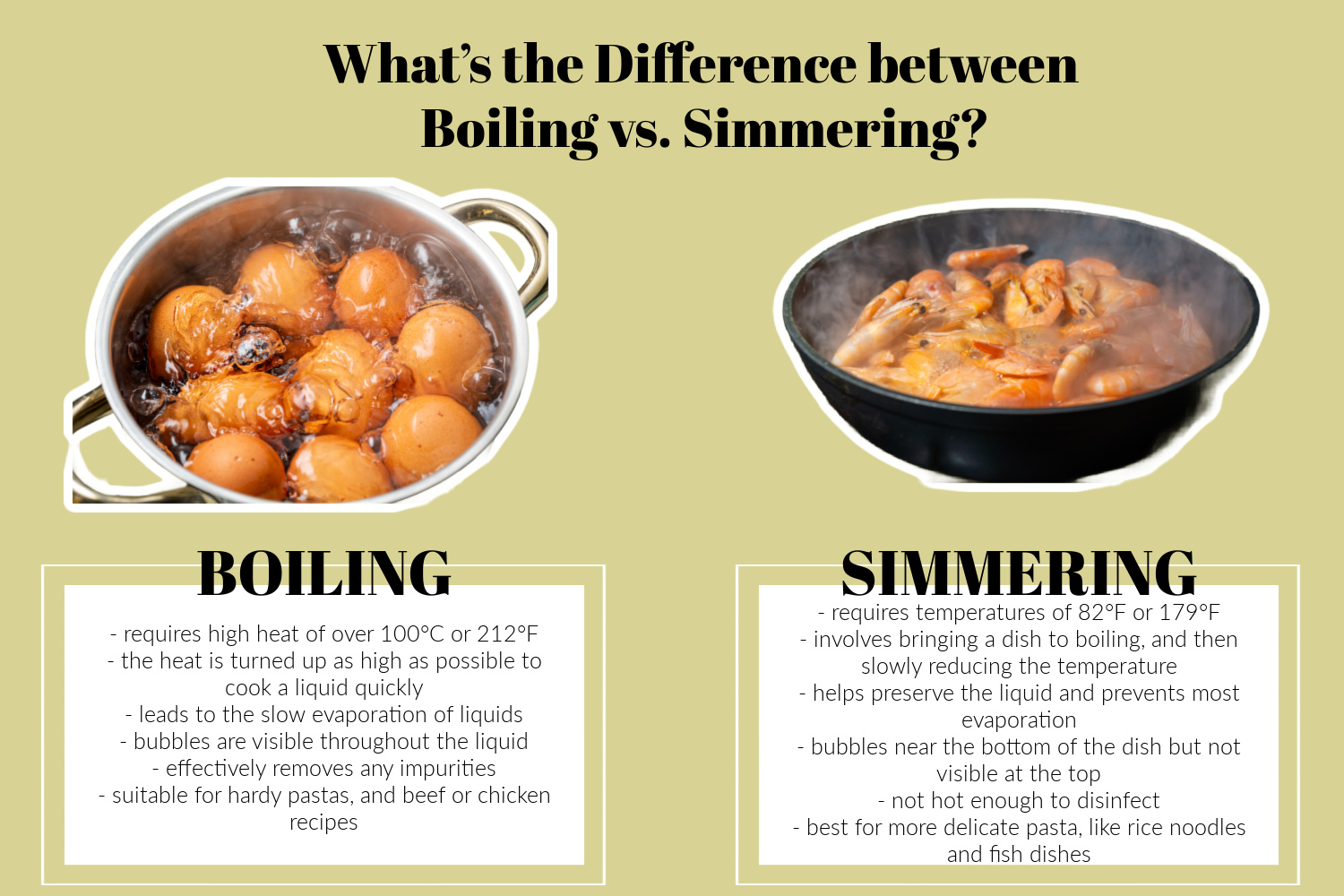Boiling and simmering are two common cooking methods, but they aren’t the same. Understanding the difference between these cooking techniques is essential to the overall outcome of a dish. It is important to master the method of boiling and simmering to achieve desired results in recipes.
The 6 Differences Between Boiling and Simmering
1. Temperature Used
The temperature used when boiling and simmering is a main difference between the two. Boiling requires heating a liquid to a high heat of over 100°C or 212°F. Whereas, simmering liquids only need to be heated to temperatures of 82°F or 179°F, and they are kept below the temperature of boiling.
2. How Heat is Used
The way the heat is used is another difference between boiling and simmering. For boiling, the heat is turned up as high as possible to cook a liquid quickly. While this works, it isn’t suitable for delicate recipes. Simmering involves bringing a dish to boiling, and then slowly reducing the temperature to allow the dish to cook more slowly.
3. How it Affects Liquids
There are differences in the way boiling and simmering affects liquids. Boiling leads to the slow evaporation of liquids in recipes. In contrast, simmering helps preserve the liquid and prevents most evaporation.
4. What it Looks Like
Boiling and simmering are also different in how each each cooking method looks. When a dish is being boiled, bubbles are visible throughout the liquid, and it is all very hot. With simmering, bubbles form near the bottom of the dish but aren’t visible at the top, meaning the base of the dish is warmer than the surface.
5. Dishes to Use it With
The dishes used when boiling and simmering differ as well. Boiling is suitable for hardy pastas, and beef or chicken recipes. Simmering is best for more delicate pasta, like rice noodles and fish dishes.
6. Disinfecting Effect
The ability to disinfect is another difference between boiling and simmering. Boiling water effectively removes any impurities, such as bacteria and pathogens, and should be used when the origin of food or water is questionable. Simmering is not hot enough to do the same, and impure water should be boiled before being used for simmering.
Can Boiling and Simmering Be Used Interchangeably?
Boiling and simmering are only interchangeable for certain dishes. When a recipe calls for boiling, it is always okay to reduce the heat and simmer instead. However, if a recipe calls for gentle simmering, boiling should never be used as it can cause the recipe to disintegrate or become inedible due to being cooked too quickly and harshly.

Leave a Reply